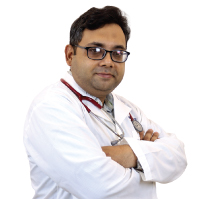Bronchoscopy is the very helpful and important respiratory procedure that may take only 10-20 minutes.
Bronchoscopy can be used to diagnose and treat a variety of lung conditions, including:
- Lung cancer
- Chronic cough
- Asthma
- Chronic obstructive pulmonary disease (COPD)
- Pneumonia
- Bronchiectasis (a condition that causes widening of the bronchi)
- Foreign body aspiration (inhaling an object into the lungs)
Bronchoscopy can also be used to collect samples of tissue or fluid from the lungs for testing.
Types of bronchoscopy
There are two main types of bronchoscopy:
- Flexible bronchoscopy: This is the most common type of bronchoscopy. It is done with a thin, flexible tube that can be easily navigated through the airways.
- Rigid bronchoscopy: This type of bronchoscopy is less common, but it may be necessary if the doctor needs to view a larger airway or remove a foreign body. Rigid bronchoscopes are larger and stiffer than flexible bronchoscopes.
What to expect during a bronchoscopy
Bronchoscopy is usually performed under sedation or light anesthesia. This will help you relax and make the procedure more comfortable.
The doctor will insert the bronchoscope through your nose or mouth and down your throat. The bronchoscope will be guided through your airways using a video monitor. The doctor will then be able to examine the inside of your lungs.
If the doctor needs to collect a sample of tissue or fluid, they will insert a small instrument through the bronchoscope.
The bronchoscopy procedure usually takes about 30-60 minutes.
After a bronchoscopy
After a bronchoscopy, you may experience some throat soreness or hoarseness. You may also have some coughing or sneezing. These symptoms are usually mild and go away on their own within a few days.
If you have any concerns after a bronchoscopy, be sure to talk to your doctor.
Author:
Dr. Mohammad Nazmul Hasnine Nawshad
MBBS, BCS (Health), MD (Chest Diseases)
Attending Consultant
Respiratory Medicine

